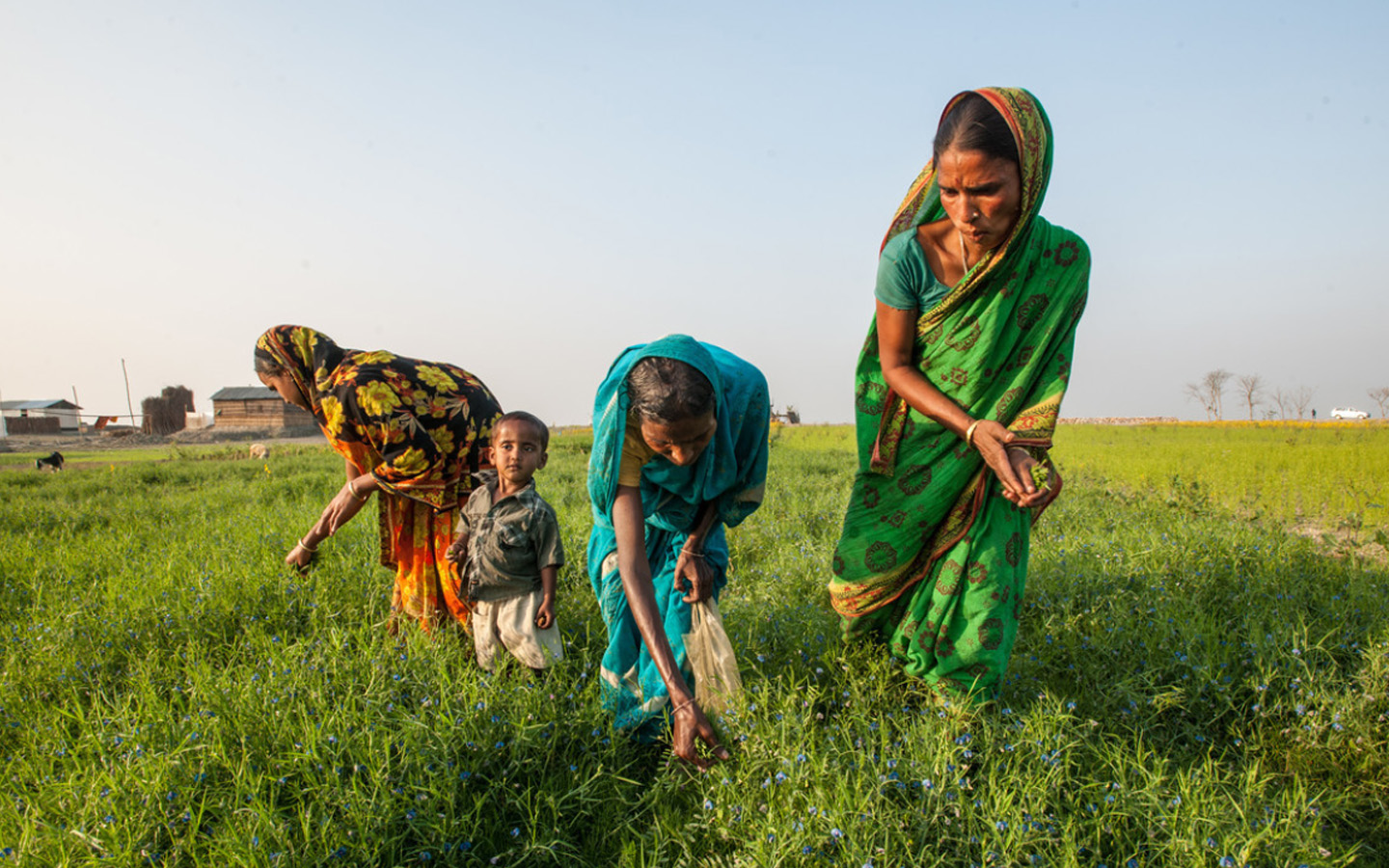Nature-Inspired Solutions to City Flooding
With financing partners supporting nature-based solutions, the residents of Chennai–Kosasthalaiyar basin will enhance climate resiliency to help the city cope with intense rainfall and storm surges and protect lives and the economy.
An important, yet vulnerable economic force
A key player in the state and national Indian economy, Chennai, with nearly 11 million people, is the fourth-largest metropolis in India. Located along India’s first coastal corridor, the East Coast Economic Corridor, Chennai contributes 60% of Tamil Nadu state’s manufacturing output and 60% of India’s automotive exports.
Lack of appropriate planning has led to urban expansion altering the natural landscape and land use, in turn leading to shrinking water bodies and expanding impermeable areas. Consequently, the water retention capacity of the city’s water bodies waned due to increased encroachment and unplanned area development.
Half of the city’s 19 major water bodies in the city has been encroached on, severely limiting the available surface water storage potential and its ability to mitigate extreme weather events’ impacts. Such environmental degradation heightens the risk of widespread damage and loss to the economy and livelihoods from flooding. Industrial enterprises are exposed to worsening risks of severe asset damage and income loss from prolonged inundation, undercutting the area’s ability to attract investment. In addition, many slum residents live in substandard housing in flood-prone zones. With low household income and limited access to essential services, urban low-income households are increasingly vulnerable to flooding.
Chennai’s location exacerbates these issues. The city sits on the highly exposed southeast coast of India and is relatively low and flat, ranking the city the highest among large Indian cities most exposed to climate change-related threats. In 2015, 400 lost their lives due to severe flooding from multiple torrential rainfalls. More than a third of Chennai sustained flooding of up to 1.5 meters for over 10 days. The floods destroyed property and livelihoods, particularly of poor and other vulnerable groups residing alongside water bodies. The impact on the environment and public health was high as sanitation worsened and vector-borne, waterborne, and airborne diseases spread.
Partnership support
The Chennai–Kosasthalaiyar River basin spans 128 square kilometers, covering 30% of Greater Chennai’s land area. Strengthening flood resilience requires robust and holistic approaches to flood risk management, with careful consideration of the socioeconomic impacts and the complex meteorologic and hydrologic causes of urban flooding.
In 2022, ADB approved a grant financing from the Global Environment Facility for the Integrated Urban Flood Management for the Chennai–Kosasthalaiyar Basin Project - Additional Financing. This provides supplementary funds to an existing project approved in 2021.
The additional financing will expand the project’s scope, mainly to help the city improve flood retention in the Kadapakkam Lake through ecosystem restoration. Desilting will restore water holding capacity in the lake and double its volume from 1.1 million to 2.2 million cubic meters.
Recognizing the pressing need to strengthen environmental conservation and climate and disaster resilience, the additional financing will provide adaptive nature-based solutions to maximize environmental services over time and provide long-lasting benefits.
This nature-based approach includes restoring the lake catchment’s natural, hydraulic, and ecological functions and processes, allowing the water body to retain floodwaters. The nature-based solutions will have multiple co-benefits: improved infiltration into depleted aquifers, which restores groundwater availability; protection of water body from direct wastewater discharge and encroachment; habitat restoration for flora and fauna which revives biodiversity; and facilitation of recreation through waterfront development.
The Global Environment Facility Grant supported the project to help restore the lake catchment’s natural, hydraulic, and ecological functions and processes.
Kadapakkam Lake is in a newly developing peri-urban part of the Chennai–Kosasthalaiyar basin. Changing land use limits the ability of surface water storage to mitigate flooding. Located near the Manali industrial hub in north Chennai, the lake is at a worsening risk of water pollution, encroachment, and biodiversity loss. Further, climate risk and adaptation assessments foresee more damaging floods as climate change is predicted to increase rainfall intensity by an average of 11%–16% by 2050.
Nature-based solutions for climate change adaptation
The additional grant will demonstrate nature-based solutions for climate change adaptation through rejuvenation of the water body, promoting integrated flood risk management to strengthen climate and disaster resilience, mitigate environmental degradation, and enhance biodiversity.
The project will restore natural, hydraulic, and ecological functions and processes of the lake catchment and allow the water body to retain floodwaters and reduce and delay peak runoff. Enhanced flood retention in the catchment will complement a stormwater drainage system implemented under the original project and enhance integrated flood resilience in the basin.
The nature-based solutions will have multiple co-benefits such as improved infiltration into depleted aquifers, which restores groundwater availability; the protection of the water body from direct wastewater discharge and encroachment; and habitat restoration for flora and fauna, which revives biodiversity. Significant potential exists for replication in other cities that face similar urban flood challenges and loss of natural environment in India and around the world.
Project Details
India: Integrated Urban Flood Management for the Chennai-Kosasthalaiyar Basin Project - Additional Financing
Cost
$9.5 million
- Government of India $2.6 million
Cofinancing Partner
- Global Environment Facility (Grant) $6.9 million
Dates
Approval Date 3 June 2022
Signing Date 16 August 2022
Completion Date 30 June 2026
Knowledge Contributor
Akira Matsunaga, principal urban development specialist and project officer, ADB


